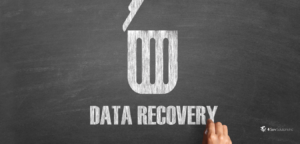Analytics has to be at the top of the list when it comes to the jargon used by organizations. Analytics and data mining has never been more vital than they are now, thanks to the internet along with how technology is developing. And, while data is valuable, how it is used can make or ruin a business. This is where the field of business analytics comes in. Managers can use business analytics to better understand their company’s dynamics, predict market shifts, and mitigate risk. Organizations have adopted analytics and rigorous statistical reasoning to make judgments that increase efficiency, risk management, and revenues, rather than “going with their gut” when keeping inventories, pricing solutions, or employing people. In this article, we will focus on how business analytics qualities enhance business analytics decisions.
Business Analytics importance
The mix of skills, technologies, and procedures used to study an organization’s data and performance to obtain insights and make data-driven decisions in the future using quantitative models is known as business analytics purpose is to determine which datasets are valuable and which can boost revenue, efficiency, and productivity. When applied effectively, business analytics opportunities may be utilized to accurately forecast future events involving consumer behavior, market trends, and the creation of more efficient procedures that could result in increased profit.
Types of analytics – Signifying qualities
While Huge Data may appear to be “too big” for your organisation, it can be employed by enterprises of all sizes. While it can collect data from a variety of analytical processes, it’s crucial to understand how these processes are classified and how they can affect your company’s decision-making. There are 4 main categories of analytics helping decision making across businesses.
- Descriptive analytics is the process of interpreting historical information and Metrics to spot trends and patterns. Using data processing and data mining gives for a big picture view of what happened previously and what is occurring now. Many businesses utilise descriptive analytics to gain a better understanding of their consumers’ behaviour and how to tailor marketing efforts to them.
- Diagnostic analytics looks back at prior performance to see what factors impact certain trends. Drill-down, correlation, data discovery, and data mining are used to uncover the reason for specific events. Algorithms for categorization and regression are utilised once an understanding of the likelihood of an event and why it might happen has been reached.
- Predictive analytics uses statistical techniques and machine learning approaches to estimate and assess future outcomes. The results of descriptive analytics are frequently used to develop models that predict the likelihood of specific outcomes. Sales and marketing teams frequently utilise this type to estimate customer attitudes regarding social media data.
- Prescriptive analytics: Recommends how to handle similar situations in the future based on prior performance data. This form of business analytics can not only predict outcomes, but it may also suggest particular actions that must be taken to get the greatest potential conclusion. Deep learning and complicated neural networks are frequently used to do this. To match a variety of real-time needs of a consumer, this analytics is a best practice.
Influencing a better decision making
Constant digital decision-making at all levels of a company is critical for performance and growth, opening up a variety of possibilities. Allowing data analytics to affect your judgement provides structural and process benefits, as seen by the following three data points:
- Enable an improved customer experience – Data analytics may help your company make better decisions by deciphering patterns from consumers and employees, allowing you to better understand their engagements and collaborate with the IT department to improve them. Having your IT groups collaborate with your marketing departments will aid in the achievement of critical audience outcomes and goals.
- Increase overall performance – Internal performance is vital, and using data analytics to maximise time and employee capabilities are excellent ways to improve it. Data analytics may assist identify areas where an employee needs to develop, as well as departments that could benefit from a restructured workforce, resulting in improved performance across the board.
- Risk assessment and management – Risk assessment and management is another important area where data analytics may help with decision making. Cooperation with your IT department can increase the forecasting of possible issues, whether it’s organized or unstructured. By utilising this information, you will be able to make better judgments in a crisis, eliminating the need for a more reactive risk management strategy.
To conclude, A company’s ability to implement the correct business analytics qualities is not something that can be accomplished overnight. When certain best practices are implemented, however, you can rest assured that the insights you obtain will help your company achieve maximum performance. When your company uses business analytics opportunities, you’ll be able to make more informed decisions about revenue, customer experience, and general efficiency. Set a goal for yourself and keep your head in the game. You’ll be impressed by what you discover in making business analytics decisions.




























